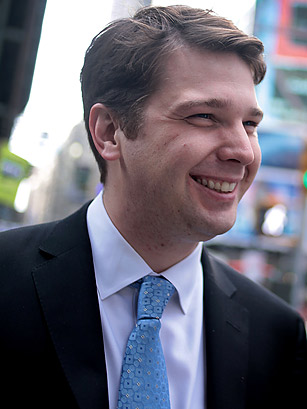
Groupon founder and CEO Andrew Mason's path to internet riches was a fortuitous one. He sold his first web company, Starbelly, for $240 million in 2000, right before the tech bubble burst. After finishing college and working as a web designer, he decided to go to grad school at the University of Chicago in 2006 and within his first few months there, he started a site called The Point that allowed people to band together to raise money for causes. It was successful enough that Mason was given a $1 million investment to run it full time, prompting him to drop out of grad school no sooner than he'd started. When the site needed revenue, Mason decided to extend The Point's group-focused features into a collective buying section for local deals, which eventually became Groupon. Mason told Chicago Magazine in 2010 that he thought Groupon would be "the tail that would wag the dog," allowing The Point to stay afloat financially. Groupon, of course, turned into something much bigger than even Mason could have imagined: Thanks to the company's recent IPO he's now a billionaire. It's not all smooth sailing for Mason, however. Groupon's success has spawned legions of copycats, including a couple from big players Google and Amazon. As part of its IPO, the company had to restate its financial results because of questionable accounting practices; in so doing, it essentially cut its reported sales for the first half of 2011 and clarified that it is still unprofitable. And some observers are questioning whether all the daily deal hysteria is sustainable.